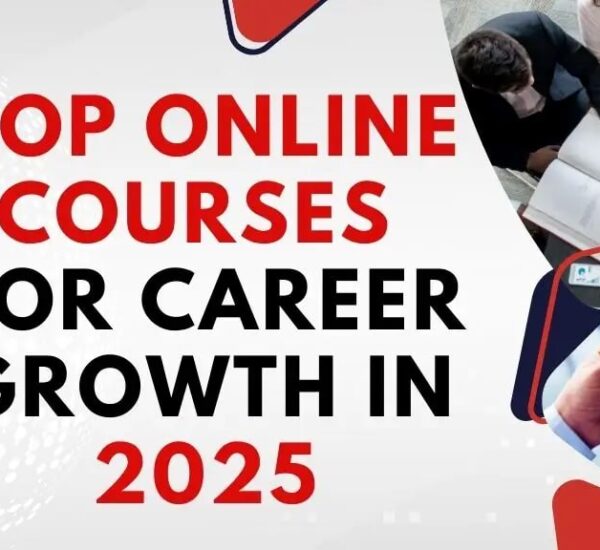Choosing a career is one of the most important—and exciting—decisions you’ll ever make. It’s the first big step in shaping your future, and while the possibilities are endless, the uncertainty can be overwhelming. But here’s the good news: you’re not alone in this, and the journey doesn’t have to be stressful.
In this comprehensive guide, we’ll help you discover a career that fits your strengths, passions, and long-term goals. From doing a simple SWOT analysis to building powerful connections and exploring internships or apprenticeships, we’ve broken down every step to help you take control of your future.
✅ Step 1: Know Yourself – Do a Career SWOT Analysis
Before you explore job listings or degree programs, start by understanding yourself. One of the best tools to do this is a SWOT analysis (Strengths, Weaknesses, Opportunities, Threats). This business strategy tool works just as well for career planning.
Here’s how to break it down:
Strengths: What do you excel at? Are you good at communication, problem-solving, design, coding, or leadership? Include your academic achievements, soft skills, and even hobbies.
Weaknesses: What areas need improvement? Do you struggle with public speaking, time management, or certain technical skills?
Opportunities: Are there industries growing rapidly that match your interests? Examples: AI, renewable energy, digital marketing, mental health.
Threats: Are there external factors that might limit your success—like a competitive job market, lack of work experience, or economic instability?
💡 Pro Tip: Write everything down in a 2×2 matrix format. You’ll quickly identify patterns that can guide your career decision.
🌐 Step 2: Build Connections and Network Strategically
When it comes to career success, who you know can be just as important as what you know. Networking opens doors you didn’t even know existed.
Here’s how to start:
Attend career fairs, university events, or online webinars in your field of interest.
Use LinkedIn to connect with industry professionals, alumni, and thought leaders. Don’t hesitate to ask questions about their career journey.
Join online communities or professional associations related to your desired field.
👋 Real Talk: Sometimes, a coffee chat with someone already in the job you dream about can teach you more than any textbook.
🛠️ Step 3: Explore Internships and Apprenticeships
Nothing beats real-world experience. If you’re unsure about a career path, internships and apprenticeships give you a taste of what the job actually involves.
Why these matter:
They provide hands-on training and real work environments.
They help you build your resume and network early.
Many companies hire full-time from their intern/apprentice pool.
Types of Programs:
Internships: Ideal for students in college or university looking to gain experience in marketing, business, engineering, IT, etc.
Apprenticeships: Best suited for trades and vocational careers like plumbing, electrical work, graphic design, and culinary arts.
✅ Bonus Tip: Look for paid programs—many offer competitive stipends or cover living expenses.
💬 Step 4: Learn From Real Success Stories
Sometimes, hearing how others figured it out can be incredibly motivating. Here are a few real-life examples:
Sara Blakely, founder of Spanx, started as a fax machine saleswoman. She had no background in fashion, but a bold idea and determination changed her life.
Elon Musk studied physics and economics before moving into tech, launching PayPal, Tesla, and SpaceX—all in different industries.
Oprah Winfrey started her career as a news anchor, but her passion for storytelling and people turned her into a global media icon.
🎯 Takeaway: Your first job doesn’t have to be your forever job. Stay flexible and open to new opportunities.
📚 Step 5: Keep Learning and Growing
Your career path isn’t a straight line—it’s a journey of continuous learning. Even after you land your dream job, there’s always room to grow.
Keep your skills fresh by:
Enrolling in online courses (Coursera, edX, Udemy, Skillshare).
Reading books, listening to podcasts, and following industry blogs.
Getting professional certifications in your area of interest.
🧠 Lifelong learning = lifelong earning.
Final Thoughts: Your Career, Your Choice
Choosing a career doesn’t have to be scary. It’s a process of discovery, not a one-time decision. Be patient with yourself, stay curious, and take small but consistent steps. And remember, your career is not just about making money—it’s about building a life that excites you every morning.
Whether you’re planning to be a doctor, designer, entrepreneur, engineer, teacher, or something in between—you’ve got this.
🌟 Ready to take the first step?
Start by doing your SWOT analysis today. Grab a notebook, write down your strengths and passions, and begin exploring options that match. The world is full of possibilities—go find the one that fits you best.


